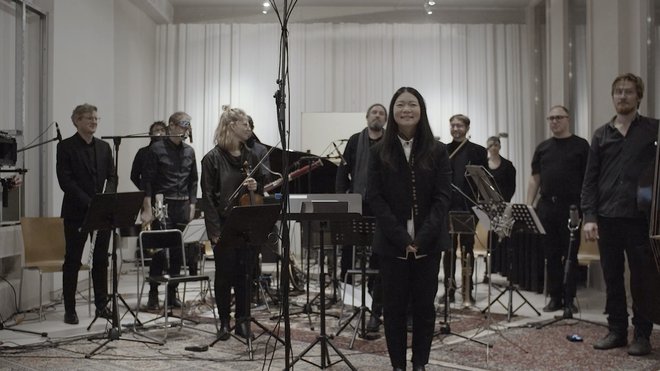Xenakis Machine
 Melanie Hollaus
Melanie Hollaus
First European composition program
"In the early 1960s, Iannis Xenakis, together with IBM-France, completed a computer program for music composition, which is still considered the first European composition program in music history. By means of probability calculations, the program determines sound clouds. The result of this Xenakisian computer music is documented in his ST compositions from the 1960s. Due to its stochastic nature, the program outputs a different result - a different composition - each time it is run." (Alan Fabian)
Xenakis as a pilot
Xenakis introduces himself as a 'Pilot':“[H]e [the composer-pilot] presses the buttons, introduces coordinates, and supervises the controls of a cosmic vessel sailing in the space of sound“ und weiter „The program (...) may be exploited by any composer pilot (who) can instill his own personality in the sonic result he obtains.” (Formalized Music, 1992, S. 144.)
New automation
Already in 2014, flutist Thomas Frey (Studio Dan) and Alan Fabian made first efforts to revive the software. Christof Ressi, composer and music computer scientist, has now been recruited for the further development and technical modernization of the program code, i.e. the creation of a user interface and a connection to common output formats. He describes his work as follows: "Up until now the computer program did not create a finished score, but only columns of numbers describing musical events (pitch, tone duration, volume, playing technique, etc.) within a timeline. It was the task of the composer to translate this stream of numbers into musical notation. Xenakis still had to carry out this transmission process manually. With today's technical means, however, it is possible to automate this step almost completely as well."
Christof Ressi's project also refers to considerations already made by Xenakis: "The final phase is the decoding of the results into traditional notation, unless an automatic transcriber is available." (Xenakis, Formalized Music, 1992, S. 142)
Archaeology of Computer Music and Revival
Ressi continues, "As of today, Xenakis' ST compositions are still played by ensembles, but the underlying computer program has been virtually forgotten. The goal of this work is to make his then radical concept of a completely algorithmically generated music accessible again to today's musicians."
In December 2022, the first three compositions were created with the revised software and premiered by Ensemble Studio Dan.
Studio Dan
Sophie Goidinger-Koch – violin
Martina Bischof – viola
Philipp Kienberger – double bass
Thomas Frey – flute
Matthew Smith – bassoon
Dominik Fuss – trumpet
Daniel Riegler – trombone
Clemens Salesny – saxophon
Margit Schoberleitner – percussion
Michael Tiefenbacher – piano
Martin Siewert – guitar
Xizi Wang – conductor